GEAB 151
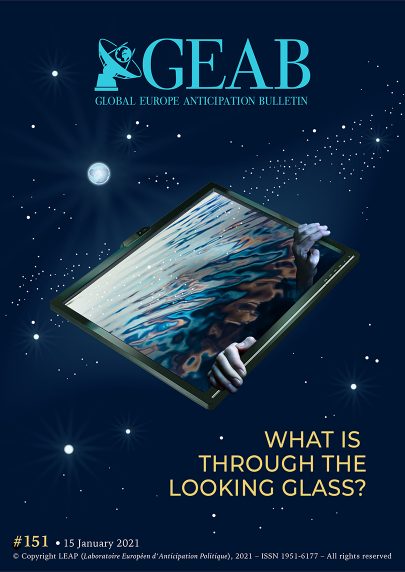

Like any living organism, our world died in suffering, blood and excrement (and disease). Like any living organism, a new world is born in suffering, blood and excrement (and vaccination). The baby will grow and transform very quickly, crushing the freedom and the common sense of its parents. Then there will be the teenage tantrums, the severity of which will depend on natural provisions and the education received. Then things will calm down for a while…
Looking ahead to choose the right path
Societal time depends on its components, namely human beings. Therefore, we have a good twenty years (a generation) of reconstruction difficulties, crises and attempts to stabilise ahead of us. During this period, we will have to find ways to keep a cool head because the worse we manage the shocks, the more they will come back to haunt the following cycles. However, if the crises that we are expecting are rooted in the past, they will take the characteristic forms of the “world-after” – new and unusual, more difficult to imagine and to spot.
It will be more vital than ever to try to anticipate shocks and any brewing transformations. Meanwhile, we have to add a more proactive and strategic approach to the simple observation of the future in order to build a vision that will inevitably take the form of a new kind of humanism in order to take a humanity now clearly embarked on the same boat toward desirable outcomes.
Though Covid is re-compartmentalising companies, this is only temporary. In fact, the deafening message of this pandemic is “everyone is connected to everyone“. Globalization certainly needs restructuring, human mobility needs streamlining, economic and energy models need simplifying to make them future-proof, and so on, but we cannot hope for a return to good-old-fashioned self-sufficiency.
Inventing good models of governance
Unfortunately, in Year 1 of the digital era[1], even though the Italian Presidency of the G20 will do its best to get things moving[2], nothing and nobody is able to take the whole of human society and put it on to a common-yet-differentiated path to reorganisation (in varietate concordia[3]). The challenge of the decade (or even the next two) lies in inventing the political model to tackle this titanic mission.
Fortunately, the ideas and technologies to implement the solutions of the future are already there. But the solutions themselves are multiple, as are the parties involved in their invention/implementation (states, global businesses, religious groups, lobbies, etc.), and we will have to find the right governance model – the one that the whole world can more or less agree on, without resorting to force.
Understanding the new Europe
Though the current civilisation crisis is essentially that of the West, in its heart, the EU[4] (as much by its successes as its failures) continues to provide an in vivo experiment in the methods of getting different cultural entities to constructively co-exist. After 25 years of indigence and meanderings (1989-2014)[5], it is in the process of establishing a new model, the effectiveness, acceptability and sustainability of which will be rapidly put to the test.
This model consists of accepting the technocratic nature of the European superstructure that was designed to govern democratic sovereign states in a politically neutral way. This is a Europe mandated by these sovereign states to build highways, data networks, financial mechanisms, and other infrastructure on which the Member States climb and build their respective prosperities; a Europe-supermarket where each State takes what it needs to serve out its electoral terms; a Europe-toolbox to help governments to reconnect with their citizens; …
Good examples of this model are the Banking Union, capital markets union, single currency (digital and non-digital) and other Euro-bonds that today allow the EU-states as a whole to facilitate their internal exchanges, borrow at preferential rates on international markets and which at last provide a glimpse of the capacity to fund continent-wide projects. Another example is Europe’s energy union[6] where each member’s strategic choices plug into a common infrastructure, guaranteeing negotiating power and strategic independence in the face of suppliers.
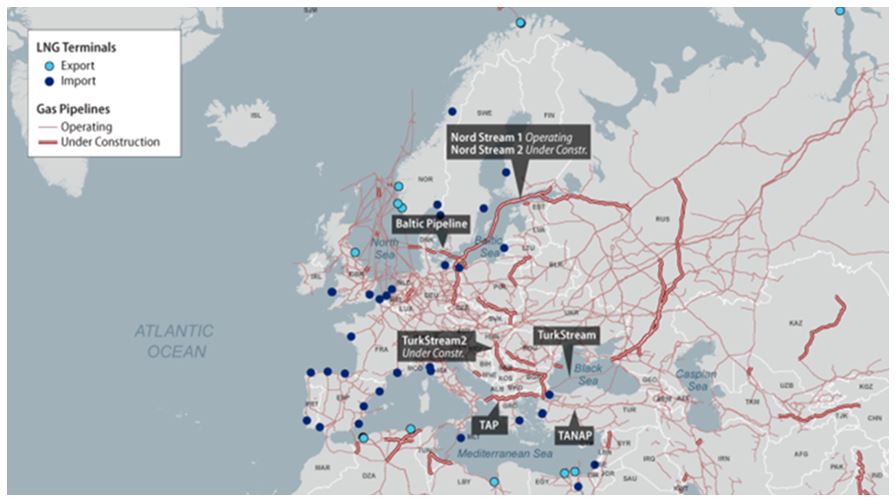
Figure 1 – Network of gas supply to Europe (pipelines and LNG terminals). Source compiled by, CRS’s Geospatial Information Systems, 26/02/2020
This model is obviously not an end in itself (nothing is in History) but it is probably the most reasonable at this stage, acknowledging the resistances to more political (European Democracy by F. Biancheri) and/or centralising (federal Europe) visions, and getting things moving forward again.
That said, this non-political Europe could quickly come up against the dangers linked to the inconsistent global position that this model leads to for our continent. A dispute has already begun between Germany which, in line with the characteristics of the model described above, is trying to put common defence into the hands of a third country (in this case, the United States via NATO) and France, on the other hand, clinging to a strategically independent Europe, thus sticking with a principle eminently legitimate but inapplicable given the absence of a democratic mandate and/or agreement between the Member States likely to legitimize any common foreign policy (in particular in the context of a global leadership war between the US and China, something that we’re not even close to resolving).
This dispute could swiftly topple the new model… unless it provides the framework for new creative solutions.
Reassuring public opinion
We’ve yet to add the people to this sketchy outline of the challenges in the coming decade. And in fact, they are likely to be sidelined in the construction phase of this new digital era. We anticipate that they themselves will be encrypted and digitised[7]. They have already lost their capacity to contribute positively to the organising of the Brave New World: by lack of any shared political vision, inadequate models for education and information, atavistic resistance to change, rejection of scientific rationality,… beyond borders, populations clump together in large communities pf certainties, ready to fight with each other.
On the Western side, two camps radicalised by their growing polarization are already emerging from this cacophony:
. An “international-progressive”[8] extremised camp, ready to lynch anyone not joining their ranks to fight for the rights of women and homosexuals, against racism (mostly black), and for the environment and animal protection… struggles that they claim they’re the only ones legitimate to fight. Shown in the media under the most flattering of lights, their theses serve to nourish the anger of the other camp…
. An equally radical “identity-reactionary” camp, whose mission is to save Western civilisation and overturn the social and moral order by tightening the ranks around a Judeo-Christian identity. They are ready to lynch all the “Others”. This camp is all the more dangerous because it has been careful to grow away from the spotlight that it has learned to be wary of and knows how to control (we will return in more detail to this emerging trend).
Between the two, it is hard for ordinary people to find a rational path.
Trying to avoid the worst
The unstable human factor will be managed along various methods, depending on the country, government and time, ranging from reinventing education systems that can reconnect citizens with the realities of this new world to simply switching off large parts of the population – following the model inaugurated by the United States four years ago, leading to the removal of rights to be heard and have fair treatment in the press of 74 million Trump voters[9] accused of being racist[10]; or, 18 months ago, by a “democratic” India decided to cut off from the world 10 million Kashmiris accused of terrorism.[11]
The choices that countries will make to recreate the social cohesion will define their subsequent influence in the world: those who choose the facile route of brutal totalitarianism will find themselves in the background of those that are able to keep their focus on rationality and humanism in the General Chaos of this oh-so-grey dawn, thus naturally imposing their model.
But the complexity of the challenges facing humanity and the power of today’s thought-control tools suggest that the beginning of the era will look like the dystopias dreamt up by 20th-century science-fiction authors – a “brave new world”.
Join the GEAB Community on LinkedIn for more discussions on this topic.
______________________
January GEAB Café
This sketchy outline of the coming decade provides the framework for our usual January overview of annual trends for Europe and the world, broken down into society, geopolitics, economics, finance, etc.
We invite you to debate these trends at our next GEAB Café (in English this time) on Tuesday 19 January from 6 pm to 7.15 pm, CET.
Contact Geta Grama-Moldovan at [email protected] to sign up (GEAB subscribers only)
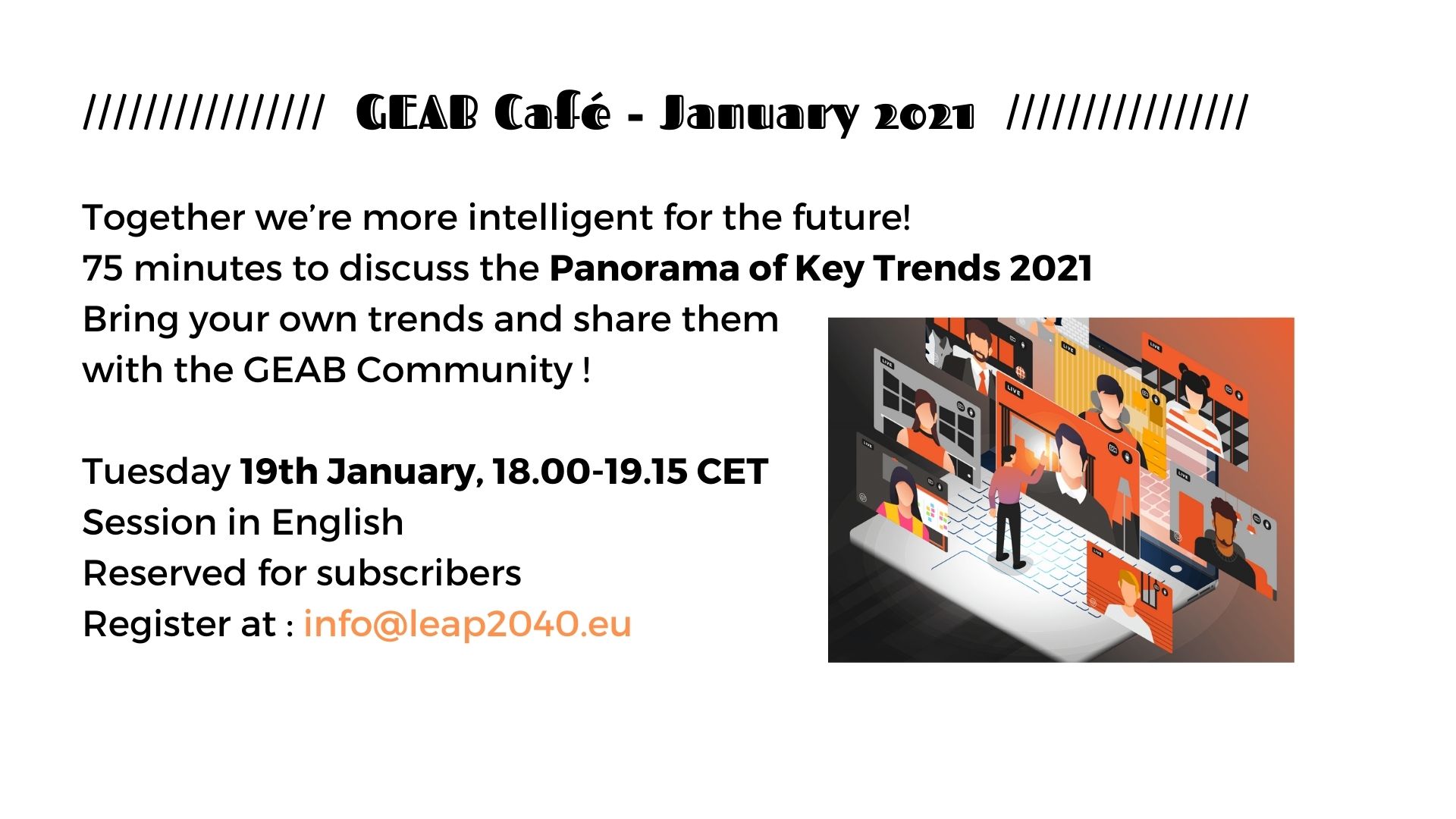
____________________________
[1] Digital technology is certainly not a recent invention, but until 2020, the Internet was a tool that served the material world. Today, it’s almost exactly the opposite : the material world is nothing more than a framework for a fully digitised society (human society, production, business, discussions, payment methods, work, entertainment, war, and so on).
[2] Source: EU Observer, 11/01/2021
[3] European motto
[4] And all the other models of regional integration: ASEAN, the African Union and the European Union are currently the more interesting communities of states models to observe.
[5] The fall of the Berlin wall to its reconstruction with the crisis in Ukraine.
[6] We’re thinking particularly of the recent addition of Azeri gas to the European energy grid. Source: S&P Global, 04/01/2021
[7] In the last edition, we were talking about the underworld from which the new world would emerge (secret agents, terrorists and the mafia). Source: GEAB, 15/12/2020. This month, we anticipate that, in a reverse movement, citizens are going to switch to a “digital-mode” in response to our democracies being muzzled. We will return to this idea in the 2021 Overview.
[8] This camp is paradoxically “progressive” while advocating merits of a kind of cultural suicide – the end to consumption, children, meat, gender, etc.
[9] Source: IPS News, 25/11/2020
[10] Statements by Merkel, Macron and others seem to indicate that Europe is beginning to worry about the censorship by private companies of democratically elected presidents’ Twitter accounts. Source: Al Jazeera, 11/01/2020

After the year of "reflection" that the long Covid break of 2020 has provided humanity, Year One of the World After, or the "Digital Age", takes us on a trip [...]
2021 is full of events that could not be held in 2020 due to the pandemic. Some of these dates are still uncertain, and the 2021 Calendar that we’re setting [...]
The post-election statement made by German Defence Minister Annegret Kramp-Karrenbauer ("The idea of European strategic independence goes too far if it nurtures the illusion that we can ensure Europe’s security, [...]
As we have already stated in various issues of the GEAB, agriculture as we know it is undergoing remarkable change. While we often see farming as a rural, analogue activity, [...]
One of the main points of instability in the reformed system emerging today is how out of touch leaders are. This year, we’ve scraped the barrel and it’s undermining all [...]
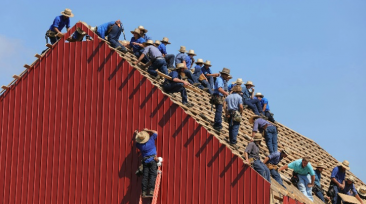
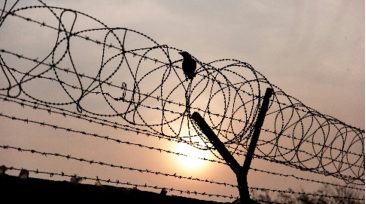

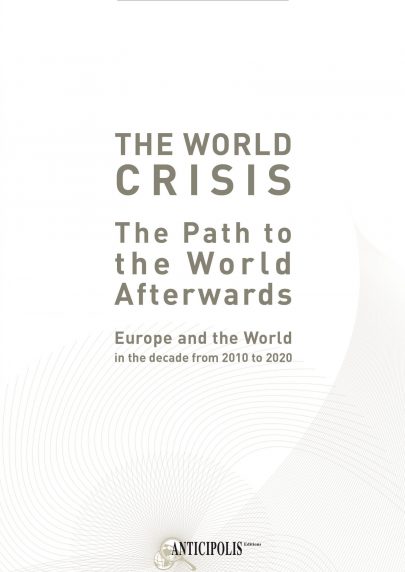
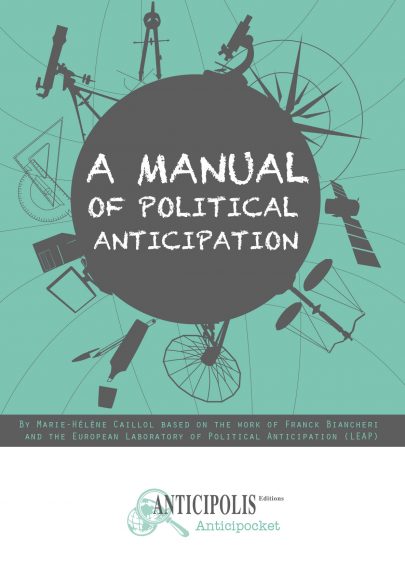
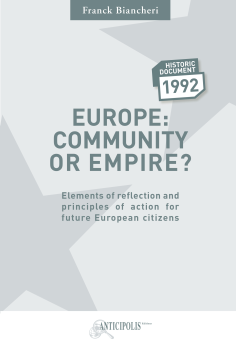
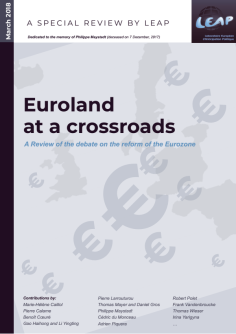
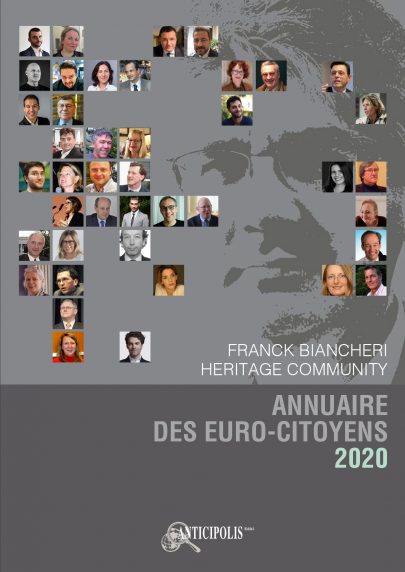
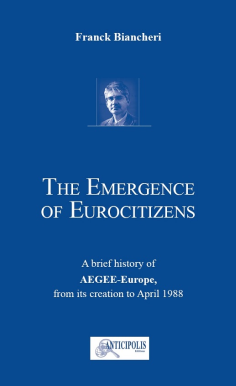
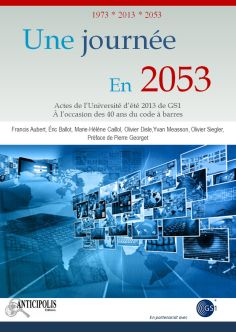
Comments